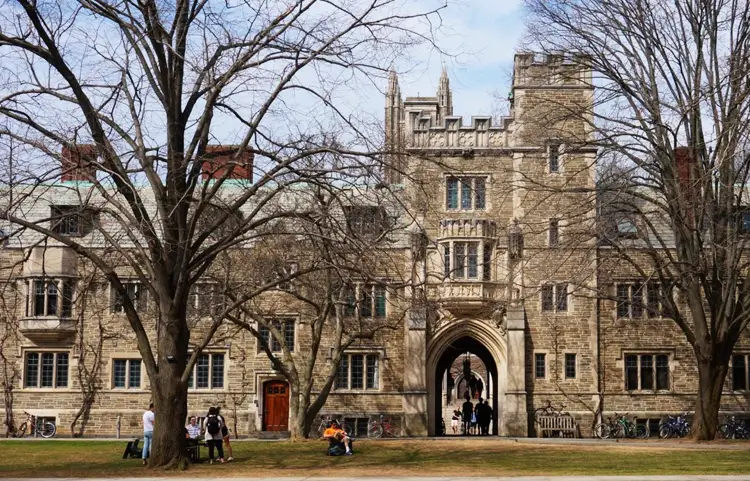Asian parents' mistake about US enrollment
Asian parents are familiar with test-taking thinking that determines a student's future, but the American University Admissions Committee does not think so.
Greg and his brother, Kevin, founded PrepMaven admissions consulting page and taught Engineering at Princeton University (USA). With many years of experience in college admissions counseling in the US, he shared the five wrong thoughts that almost every Asian parent has encountered.
For the past 12 years, Kevin and I have advised thousands of families, half of whom are of Chinese, Indian or Korean descent from Asia or American immigrants. We have answered many repeated questions and identified some misconceptions of Asian parents.

1. The admission process is not secret
The American university always carefully discloses information about the annual admission process. If they disclose too much information, admissions consultants will have a way of approaching potential families, ignoring candidates with lesser conditions or more disadvantages. And so the admissions process is no longer fair.
However, without disclosing information, schools will receive criticism for lack of transparency. In addition, many consultants will make up admissions information a secret, only those "in the industry" will know, thereby benefiting from the student's family.
In fact, the admissions process of American universities is always widely known to people through sources such as: manuals of former admissions examiners, newsletters, or interview. co-enrollment. Parents of students can find out from such sources but be careful to avoid being affected by bad news and fabricated information.
2. Standardized scores are only part of the application
We often get questions like "My child got 1,580 SAT scores after three test attempts, how to get him to 1,600?". In fact, standardized scores like SAT, ACT are important but not all.
In Asian culture, people are used to the thinking of an exam that is a major factor in deciding a student's future and career, for example the entrance exam to gaokao university in China. When preparing US student records, Asian parents also apply this idea, putting too much thought and expectation on standardized tests.
However, candidates can only get a minimum score to compete, not necessarily to get the highest score because American universities will select new students holistically.
This means that in addition to academic achievement, schools will look at extracurricular activities and the ethical qualities and preferences of each individual. We consider three criteria, academic grades, extracurricular performance, personal character as three pillars of success. If students focus solely on study scores, students may fall into the situation of achieving perfect test scores but still be rejected due to weak performance in the other two criteria.
Before applying for admission, students should cultivate all three criteria, allocate time between studying and participating in extracurricular activities. In addition, students should find answers to the questions: "What do I really want?", "What are my strengths and weaknesses?", Or "With these characteristics, I am suitable for What job? ". Then think about how you use your strengths in helping people around you. American University not only cares about personal achievements but also pays attention to the common interests and how candidates connect and share with people around them.
3. Lack of reading and writing skills
In the era of rapidly developing technology, education is increasingly paying attention to STEM (Science, Technology, Engineering and Math). In 2011, Economics, Politics and History were the hottest majors at Princeton University, but in 2018 Computer Science was the field that attracted the most candidates.
In addition, in the international eyes, Asian students are often very good at Science subjects. As a result, Asian students tend to focus on these subjects to show their ability, thereby losing their writing and reading skills. These are necessary skills in studying other subjects and disciplines at university and also important in future work.
Therefore, Asian parents should not allow their children to focus too much on Science but forget to improve their reading and writing habits. When you have time, you should read any possible material from novels, science books, articles and reading to understand.
4. There is no formula for matriculation
"What do I have to do to get my child into Harvard?", This is a question I get frequently. By extension, parents who ask this question hope to receive some "magic formula" to make sure their kids get into American universities.
I am very sorry to confirm that there is no formula for matriculation to the US university. There is no guarantee whether you have perfect grades, top grades at high school or even young stars.
Initially, the admissions committee will select a certain number of candidates through the admissions profile. For example, Princeton University will score records in two parts, hardware (GPA, SAT, awards) and software (essays, extracurricular achievements, financial statements) on a scale of 5. The lakes The selected profile continues to be re-read by the board of readers, bringing out the overall evaluation and discussion to find the most suitable candidate. A student's score is only the starting point, not the end of this enrollment chain.
In addition, the university will still have certain priorities for a number of student groups including: children of alumni, faculty, major sponsors, celebrities or influencers; are outstanding talents (eg athletes, superstars, singers); are candidates according to the needs of the Ministry of Education or educational programs (for example, female computer scientist)..

However, this group is only determined by the school's annual development strategy and will change over time. I list this example to see that there are many factors beyond the control of the parents, depending only on the school, so there is no formula for absolute success.
Therefore, parents should focus best on what can be achieved at hand. Parents should remind their children to study hard, develop personal passion, maintain good moral qualities.
5. Appreciate rankings and famous schools
We once advised an Asian mother whose daughter was admitted to Berkeley University and a number of other good quality universities, but failed Princeton University. So, the mother decided to let her child review a year to go to Princeton University but still failed. The mother came to us for advice to help her daughter practice a third time.
There is nothing wrong with parents taking the top universities seriously. The danger lies in focusing only on the rankings and brands of the schools without seeing the advantages of other places.
I understand that the goal of parents is not just to let their children go to prestigious universities, but to make them independent and successful adults. The thing to discuss here is that parents are mistaken, equating the future success of their children with the brand of prestigious schools. There is no guarantee that going to a top school will succeed in the future, while choosing a lower school will fail.
Let's take a look at real examples from successful celebrities. Billionaire Jeff Bezos (CEO of multinational technology company Amazon) or billionaire Bill Gates failed because he studied at Princeton University or Harvard University. They are brilliant, successful people who happen to attend these wonderful universities by chance. In contrast, billionaire Jack Ma (CEO of Alibaba trade group) was rejected by Harvard University but still became one of the richest people in the world.
My final advice is that college does not make your children successful, they must turn themselves into successful people.
This year 131 international organizations, from 73 countries, partnered with the PRA in Washington, D.C., and its Hernando De Soto Fellow Prof. Sary Levy-Carciente to produce the 17th edition of the IPRI..
Email: support@mssresource.com.ng
The articles on mssresource.com.ng are collected by us on the internet. If you find any infringing articles, please contact us and we will delete them immediately. Thank you!
Copyright 2004-2020 www.mssresource.com.ng , all rights reserved.